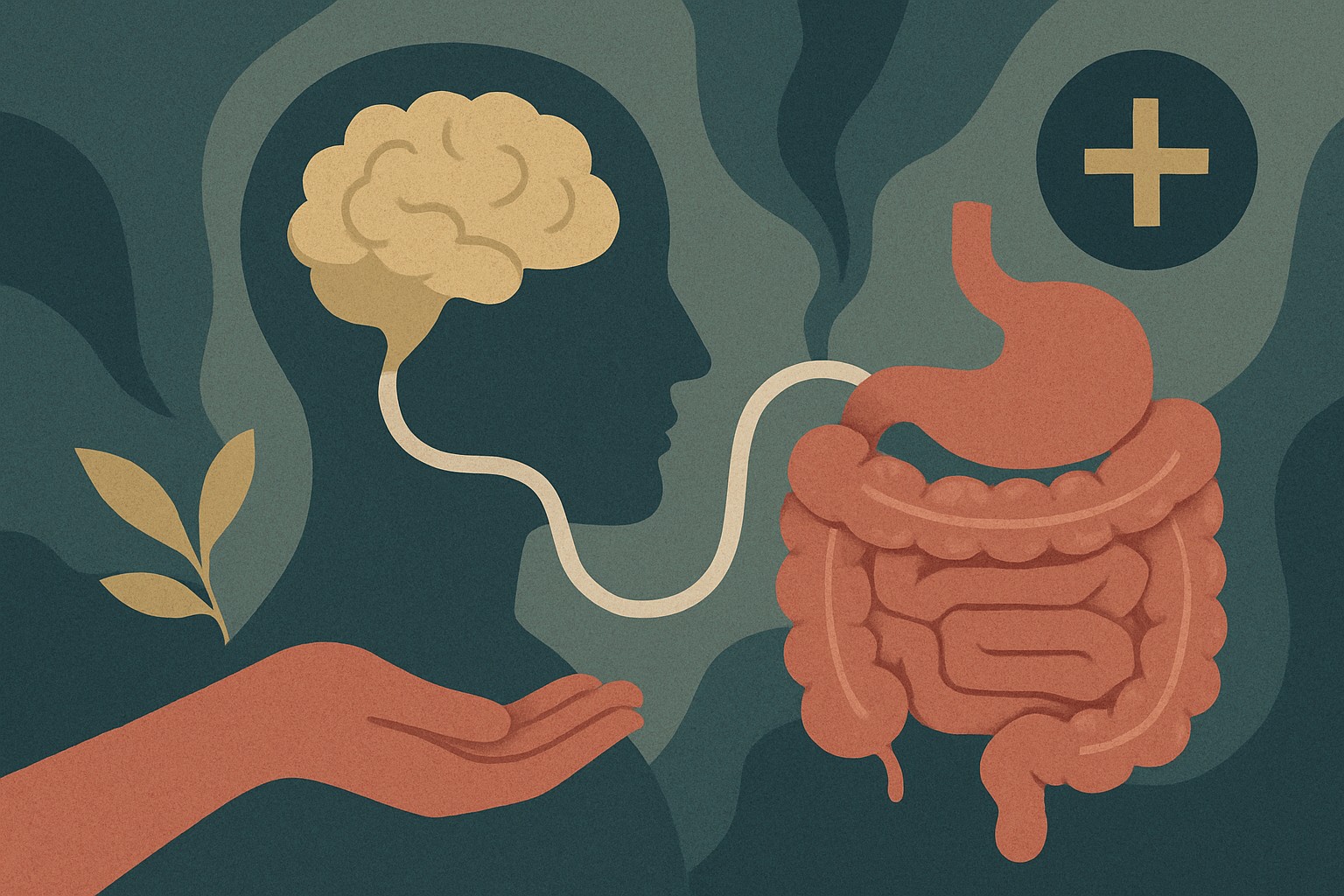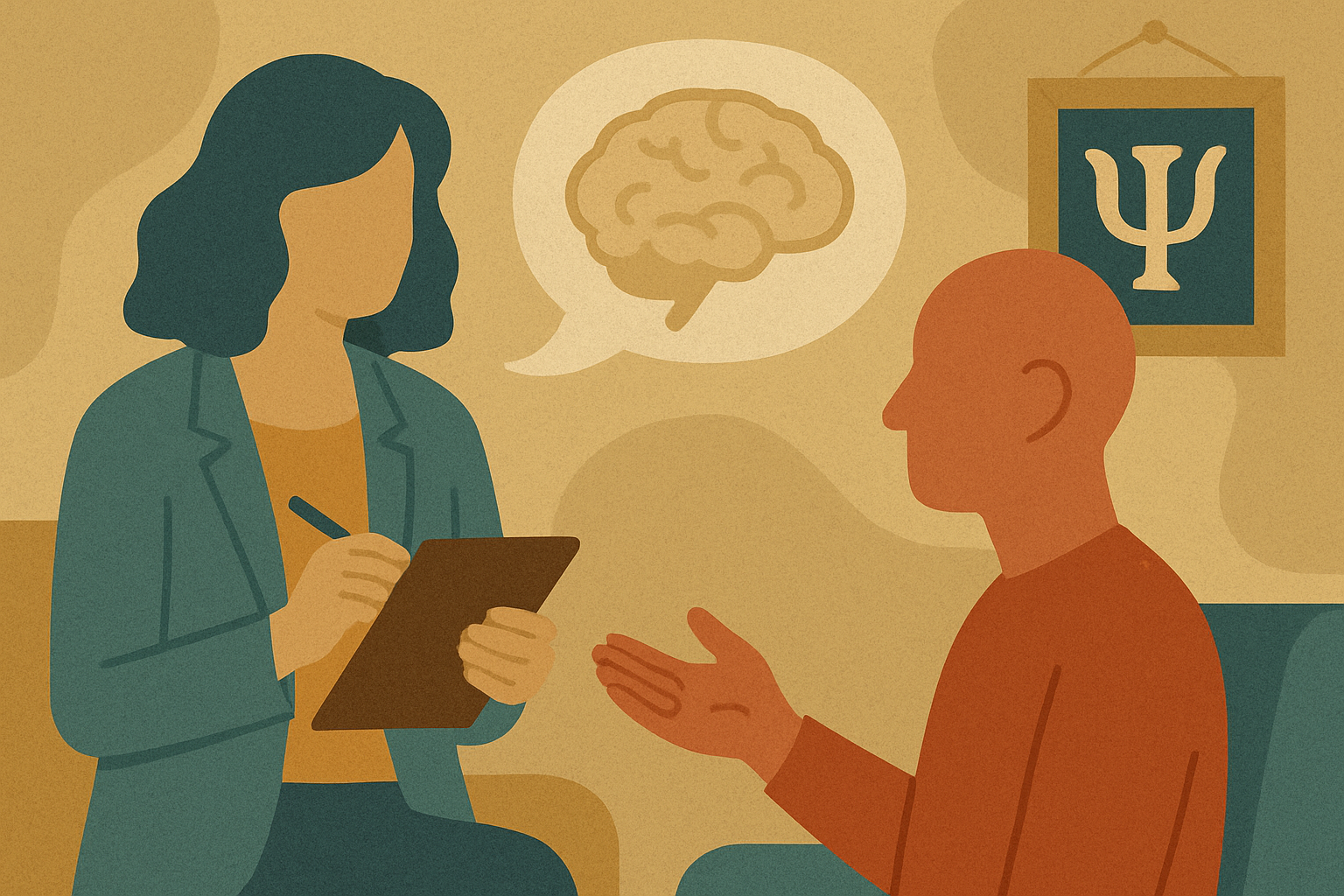Psychology & Psychotherapy
Our private psychology clinic in Central London offers expert support for anxiety, stress, depression, and trauma.
We also specialise in psychology for digestive health, using CBT and evidence-based therapies for IBS and functional gut disorders, delivered discreetly near Liverpool Street Station.
Guiding you to the right choice
Mind–Gut Connection: How Psychology Can Help Your Digestive Health
At LSDC Healthcare, we understand the powerful link between the mind and the gut. Our private psychology team in Central London works closely with patients experiencing both emotional and physical symptoms, especially in the context of digestive health.


Psychological Therapy: A Brief Introduction
Your doctor or medical team may have suggested that your wellbeing and emotional health could benefit from psychological therapy.
This is designed to help you live a more fulfilling life by addressing not only biological factors, but also the social and psychological aspects that contribute to distress.
Psychological therapy provides a safe space to:
-
Reflect, learn, and grow
-
Strengthen your resilience and self-esteem
-
Explore how past experiences shape your current patterns
-
Build positive strategies for moving forward
Our therapists are compassionate, experienced, and highly skilled at working with patients who live with chronic and complex medical conditions.
A Holistic Approach to Therapy
At LSDC, psychological therapy is collaborative. Together with your therapist, you will:
-
Develop an individualised, tailored understanding of your challenges
-
Identify strategies that support both emotional and physical health
-
Select the most effective therapy model for your needs
Therapy is hopeful, rewarding, and life-affirming, designed not only to help you cope, but to help you thrive.

Evidence-Based Therapies We Use
Our psychology team specialises in the most effective, evidence-based approaches for managing psychological and digestive health conditions. These include:
Cognitive Behavioural Therapy (CBT)
A structured, goal-oriented therapy that helps you identify unhelpful thoughts and behaviours and replace them with healthier coping strategies. CBT is highly effective for anxiety, IBS, phobias, and sleep problems.
Acceptance and Commitment Therapy (ACT)
A modern form of CBT that focuses on psychological flexibility. ACT helps you accept difficult experiences while committing to meaningful actions that align with your values.
Compassion-Focused Therapy (CFT)
Designed to help you develop self-compassion and reduce feelings of shame, self-criticism, and guilt. Particularly powerful in digestive health where embarrassment and stigma can worsen symptoms.
Schema Therapy
A longer-term, deeply compassionate approach that explores how early life experiences shape your emotional responses. Schema therapy is effective for complex patterns such as food avoidance, toilet anxiety, or low self-worth.
Eye Movement Desensitisation and Reprocessing (EMDR)
A highly specialised trauma therapy that helps reprocess disturbing memories linked to medical procedures, past health scares, or traumatic experiences. EMDR is particularly useful for patients whose digestive symptoms are worsened by unresolved trauma.
Amongst The Conditions We Treat
Cyclical Vomiting Syndrome
What it is:
Repeated bouts of severe vomiting lasting days, separated by symptom-free intervals.
Why the mind matters:
Stress, anxiety, and past traumatic episodes often trigger or worsen CVS flare-ups.
How therapy helps:
-
CBT: Short-term (12–18 sessions), symptom-focused therapy teaching you to spot early signs, reduce anxiety, and prevent flare-ups.
-
Schema Therapy: Longer-term, helps make sense of emotional reactions like shame or embarrassment, building healthier coping patterns.
-
EMDR: Targets traumatic memories linked to vomiting episodes, reprocessing them to reduce distress and prevent triggers.
Food Anxiety or Avoidance
What it is:
Fear of eating certain foods due to bloating, pain, or diarrhoea.
Why the mind matters:
Fear can lead to skipped meals, social withdrawal, or nutritional deficiencies.
How therapy helps:
CBT: Uses psychoeducation and gradual exposure to reduce avoidance and build coping skills.
Schema Therapy: Addresses shame or humiliation that underpins avoidance behaviours, promoting self-compassion.
EMDR: Reprocesses past distressing food-related episodes, enabling calmer and more confident eating.
Toilet Anxiety (Paruresis)
What it is:
Fear of urgently needing the toilet in public, or fear of an accident.
Why the mind matters:
Can limit social life, travel, and self-confidence.
How therapy helps:
CBT: Gradual exposure and anxiety management techniques to build confidence.
Schema Therapy: Links embarrassment to early experiences, transforming shame into self-acceptance.
EMDR: Processes past distressing toilet-related memories, installing calmer beliefs and reducing anxiety.
Mild OCD Around Hygiene
What it is:
Repetitive checking, cleaning, or avoidance behaviours caused by fears of contamination.
Why the mind matters:
These exhausting rituals interfere with daily life and can worsen digestive distress.
How therapy helps:
CBT: Provides structured techniques (12–18 sessions) to challenge obsessive thoughts and reduce compulsions through exposure.
Schema Therapy: Links contamination fears to early life experiences, replacing maladaptive schemas with healthier ones.
EMDR: Processes root traumatic memories, reducing obsessive fears and installing adaptive, calmer responses.
General Anxiety
What it is:
Persistent worry that impacts sleep, digestion, and overall wellbeing.
Why the mind matters:
Anxiety worsens gut sensitivity, speeding up or slowing down gut motility.
How therapy helps:
CBT: Practical tools for daily anxiety management, with psychoeducation to reduce gut–brain reactivity.
Schema Therapy: Identifies long-standing belief patterns fueling worry, reframing them to improve resilience.
EMDR: Targets past anxiety-related experiences, reducing their influence and strengthening coping strategies.
Sleep Problems & Nightmares
What it is:
Difficulty falling asleep, frequent waking, or recurring distressing dreams.
Why the mind matters:
Poor sleep worsens gut function, mental health, and recovery.
How therapy helps:
CBT: Challenges unhelpful beliefs about sleep, introduces relaxation and sleep hygiene strategies.
Schema Therapy: Uses imagery rescripting to reduce nightmares, while addressing schemas driving poor sleep habits.
EMDR: Targets trauma memories underlying nightmares, reducing intensity and improving restorative sleep.
Medication Side Effects with Anxiety
What it is:
Worrying about medication side effects sometimes more distressing than the actual effects.
Why the mind matters:
Anxiety can magnify normal body changes, leading to avoidance of important treatments.
How therapy helps:
-
CBT: Creates a safe space to explore concerns, challenge unhelpful beliefs, and develop coping strategies in collaboration with your medical team.
-
Schema Therapy: Identifies deep-rooted schemas (beliefs) linked to medication fears, encouraging healthier perspectives.
-
EMDR: Reprocesses traumatic experiences with medicines, reducing fear and strengthening confidence in treatment plans.
Depression Linked to Gut Symptoms
What it is:
Low mood, loss of motivation, or hopelessness arising from persistent digestive issues.
Why the mind matters:
Depression reduces pain tolerance, weakens self-care, and worsens gut–brain symptoms.
How therapy helps:
CBT: Uses pacing, relaxation, and reframing techniques to break cycles of hopelessness and catastrophic thinking.
Schema Therapy: Addresses long-standing feelings of failure or low self-worth, helping patients build healthier self-narratives.
EMDR: Targets trauma memories linked to gut symptoms, easing triggers and calming the nervous system.
Health Anxiety
What it is:
Constant worry about symptoms, frequent checking for illness, and seeking reassurance.
Why the mind matters:
Health anxiety can dominate daily life, increase stress, and intensify digestive discomfort.
How therapy helps:
CBT: Identifies unhelpful thinking styles, reduces reassurance-seeking, and uses exposure techniques to break worry cycles.
Schema Therapy: Uncovers underlying schemas driving health fears, reframing them into healthier thought patterns.
EMDR: Reprocesses memories linked to illness fears, reducing triggers and installing adaptive coping strategies.
Book A Consultation
Get expert advice for your medical concerns & Schedule your consultation today!
LSDC Healthcare
A couple of minutes outside Liverpool St Station, this excellent facility is conveniently located for Medical consultations in London.
This facility is open during the evenings making it an excellent choice for busy professionals.







